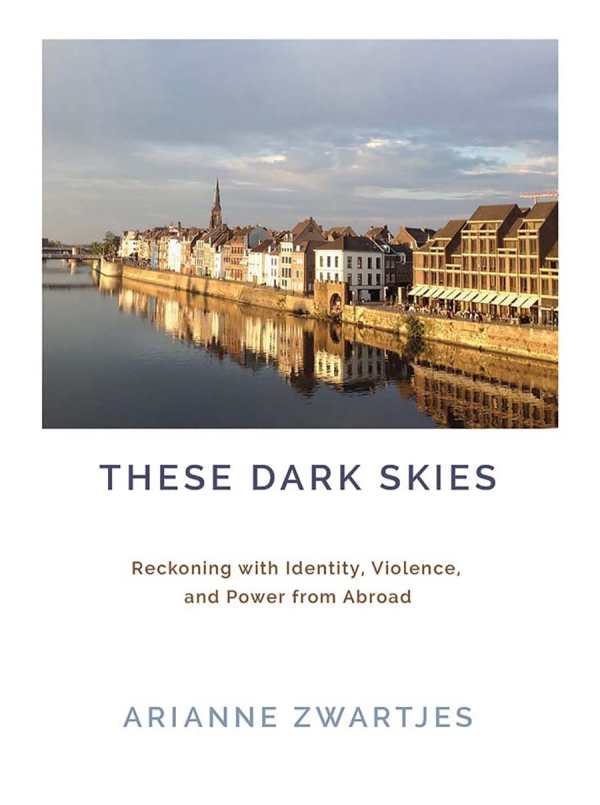These Dark Skies
Reckoning with Identity, Violence, and Power from Abroad
Arianne Zwartjes reckons with her unwitting, unwilling role in historical global power struggles in These Dark Skies.
Growing up as a white American, Zwartjes never had to think much about her privileged position on the world stage. But after spending time abroad—first in Central America as a student, then in Europe amid a flurry of terrorist attacks and a refugee crisis—she started to reconsider the physical, linguistic, and environmental violence that supported her place in the world by crushing other nations and peoples.
Zwartjes’s Europe is idyllic, filled with greenery, bike paths, and quaint shops. But she is all too aware that this is not the reality for everyone. Each essay is a series of interlocking vignettes that recount how violence brushed her life and the lives of her loved ones. A trip to Cyprus, long divided by an illegal Turkish takeover of the island’s northern half, sparks contemplation of Gaza and the violence that plagues both regions. An airplane flight over multiple war-torn countries prompts thoughts on drone strikes, war profiteering, and US aggression abroad.
Another important theme is the role that art and language play in constructing and deconstructing violence. Zwartjes discusses sculptors, dancers, and other artists whose work depicts their own violence-related trauma, and then grapples with the tradition of Zwarte Piet (Black Pete), a blackface caricature still popular at Dutch holiday celebrations.
Though confronted with human suffering and unresolvable inner conflicts at every turn, Zwartjes refuses to succumb to despair. The final essay, “Radical Hope,” is a stubborn, striking treatise on what makes life worth living and fighting for, showing how Zwartjes learned to accept that some problems do not have ready solutions.
These Dark Skies is an insightful essay collection about how humans justify violence in themselves and others.
Reviewed by
Eileen Gonzalez
Disclosure: This article is not an endorsement, but a review. The publisher of this book provided free copies of the book to have their book reviewed by a professional reviewer. No fee was paid by the publisher for this review. Foreword Reviews only recommends books that we love. Foreword Magazine, Inc. is disclosing this in accordance with the Federal Trade Commission’s 16 CFR, Part 255.

